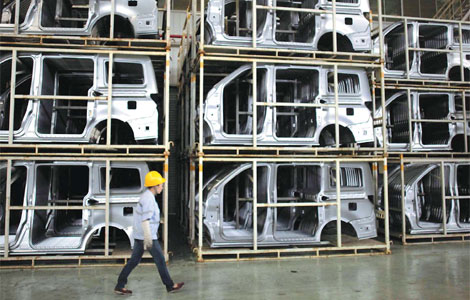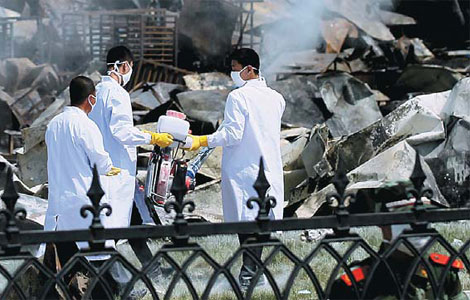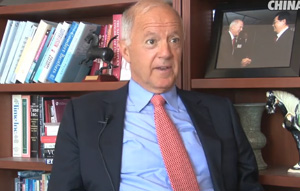Airlines must reduce their emissions
Updated: 2013-06-13 07:57
By Achim Steiner (China Daily)
|
|||||||||||
The resolution on the "Implementation of the Aviation Carbon-Neutral Growth Strategy" adopted at the International Air Transport Association annual general meeting earlier this month could prove to be an important step in the process.
A clear signal from industry that it supports a global market-based mechanism to be agreed at this year's ICAO Assembly has been one that governments have been waiting for.
Climate change remains an over-arching challenge not just for future generations, but also for those living with its early consequences today.
Impacts in the last 12 months, consistent with scientific projections, include: the largest melting of Arctic sea ice on record, a "once in a century" drought that hit the US Mid-West, followed by a once in a century hurricane that hit New York, the wettest-ever summer in the United Kingdom, followed by one of the coldest-ever springs.
As ever, the greatest tragedies have been suffered by those with the least resources to cope. But whether we are talking about floods in India, or droughts in east Africa, a climate crisis is emerging of profound proportions.
The complexity of the Earth's systems and feedback mechanisms prevent predictions being made with 100 percent certainty. But the risk assessments of the Intergovernmental Panel on Climate Change underline that humanity is playing a dangerous game of Russian roulette with our life support systems.
There are many encouraging actions underway from the rise of renewable energy investments to cuts in deforestation in countries such as Brazil.
Greenhouse gas emissions in the United States have fallen to 1994 levels according to recent estimates, and China is scheduled to invest over $1 trillion in clean energy, energy efficiency and other climate mitigation measures over the next five years.
Many other nations, large and small, rich and poor are building on the outcomes of last year's Rio+20 Summit to devise and define pathways to a low carbon, resource efficient Green Economy.
Yet despite many positive developments, the world has yet to turn the corner. Emissions into the atmosphere hit a new record high last year of over 35 billion tons - 58 percent above 1990 levels.
In order to realize the future we want, and need, economies must urgently begin decoupling economic growth from natural resource use, including fossil fuels.
Airlines must be part of that transformation. This can be the year when ICAO departs the runway and plots a course for a low carbon future. The first stop is a global deal in Montreal.
The author is UN under-secretary general and executive director of the UN Environment Programme.
Related Stories
China takes center stage in preparedness for low-carbon economy 2013-03-26 14:03
Third Pole glaciers shrinking, affected by black carbon 2013-03-25 07:58
UK scientists to make zero-carbon fuel 2013-01-21 09:50
Making a market for carbon 'commodity' 2012-11-23 07:49
Today's Top News
France threatens to block start of EU-US trade talks
Lifetime award for Jackie Chan
Spacecraft to dock
with Tiangong-1
Desert oasis
China's wine probe sparks worries
US hacking China for years: Report
Teach children to avoid abuse: experts
Registry to open for organ donors
Hot Topics
Lunar probe , China growth forecasts, Emission rules get tougher, China seen through 'colored lens', International board,
Editor's Picks

|

|

|

|

|

|





